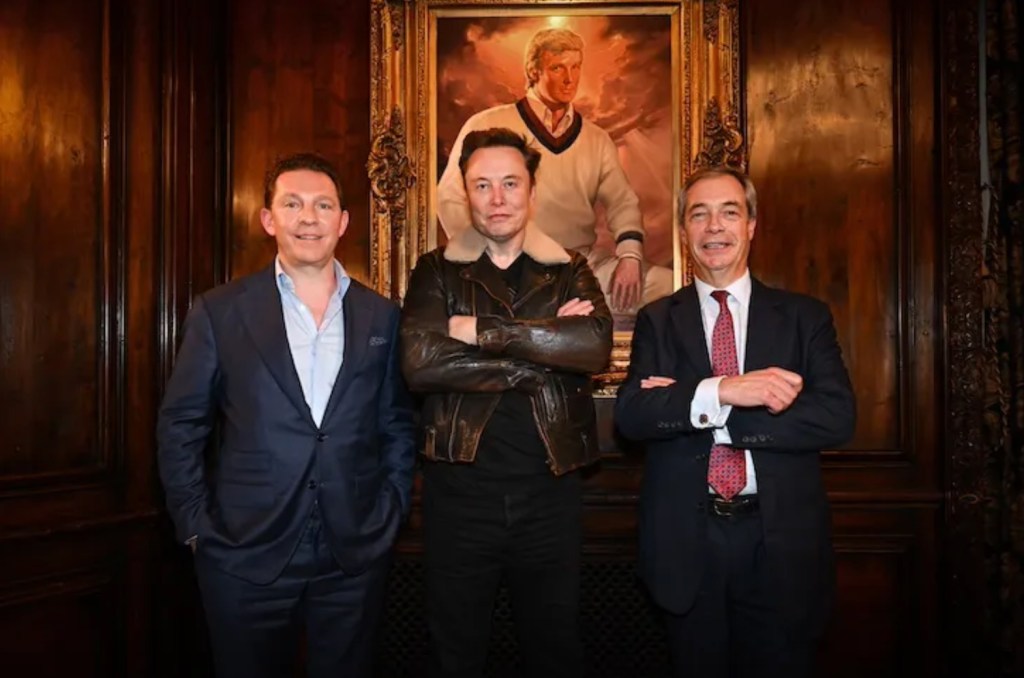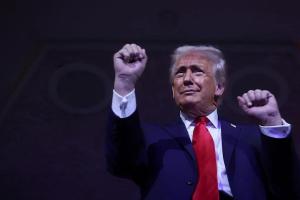We should be wary about the danger of hyper-rich donors obtaining undue influence over British political parties. There is none more hyper-rich than Elon Musk, the world’s wealthiest man by a country mile with a net worth of around $500 billion. There are persistent rumors that he could donate as much as $100 million to Reform, to the extent that the Tories are trying to muscle their way in and get some of the money themselves.
Deep pockets would improve Nigel Farage’s electoral prospects. But the claims that Musk could dramatically change Reform’s fortunes aren’t realistic.
Musk’s donations — believed to be $227 million — certainly helped Donald Trump win the White House in November. However, British elections are simply not comparable. The group Open Secrets calculated that $16 billion was spent on this year’s presidential election, with substantial amounts coming from extremely wealthy individual donors.
In Britain, the finances of political parties are regulated by the Electoral Commission, its role set out in the Political Parties, Elections and Referendums Act 2000, and there are strict controls on how much parties can spend on election campaigns and the time periods within which they can spend money. Even allowing for the fact that these limits were substantially raised in November last year to take account of inflation, a political party and its candidates contesting every one of Great Britain’s 632 parliamentary constituencies would not be allowed to spend more than £46 million ($57.5 million).
That is a substantial sum of money, undoubtedly. The Electoral Commission’s oversight is not perfect, and there are valid concerns about political parties rewarding major donors who are otherwise little-qualified with peerages. But any parallel with the United States will not get off the ground.
In Britain, previous mega-rich donors’ impacts have not proved to be particularly dramatic. A few years before the 1997 general election, the Anglo-French financier Sir James Goldsmith established the Referendum Party, a single-issue organization advocating a referendum on the UK’s membership of the European Union. (In 1994, that was a fringe position.)
Goldsmith had previously had close links with the Conservative Party, but for the 1997 election he would attempt to be its undoing: the Referendum Party nominated 547 candidates in the UK’s 659 constituencies, more than any minor party had ever done, and Goldsmith spent lavishly. He spent three times as much on media advertising as the Conservatives and five times as much as Labour, including the delivery of video cassettes of a short film on the dangers of European federalism to five million households.
The Referendum Party supposedly spent more than £20 million on the 1997 general election. Nationally it won 811,827 votes, 2.6 percent of the total. It drew votes disproportionately from the Conservatives, but analysis of polling data suggests it cost them no more than fifteen or sixteen seats, and perhaps as few as four, against an overall loss of 178. Goldsmith died of pancreatic cancer eleven weeks after the election.
Elon Musk is a strange, unpredictable, capricious and arrogant figure who can demonstrate intense focus when it suits him. He also delights in disruption and aggravation, and a sense of mischief could persuade him to offer Reform sums of money which are to him rounding errors. As a South African-born US citizen based in Texas, he would have to abide by or work around various restrictions on foreign donations but the rules are not insuperable. Anyone interested in the propriety of British politics should be paying attention.
In the end, though, votes not dollars decide UK elections. Plutocrats have opened their wallets before, and it is not a shortcut to certain victory. So pay attention, yes, but don’t play Musk’s game and become fixated. Britain is not America.


























Leave a Reply